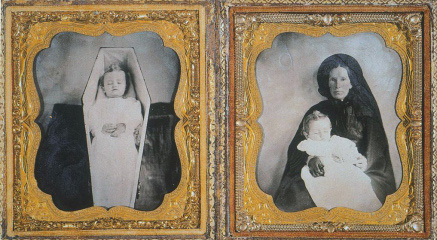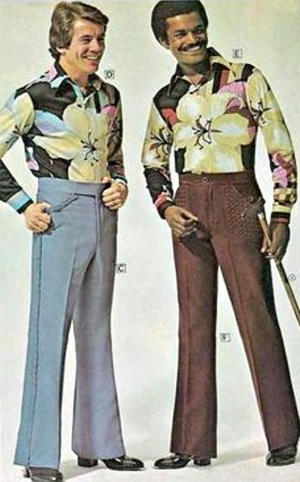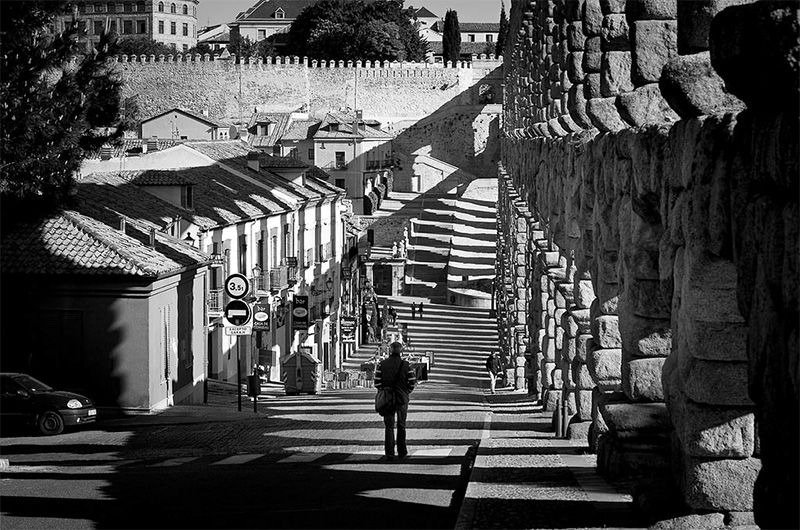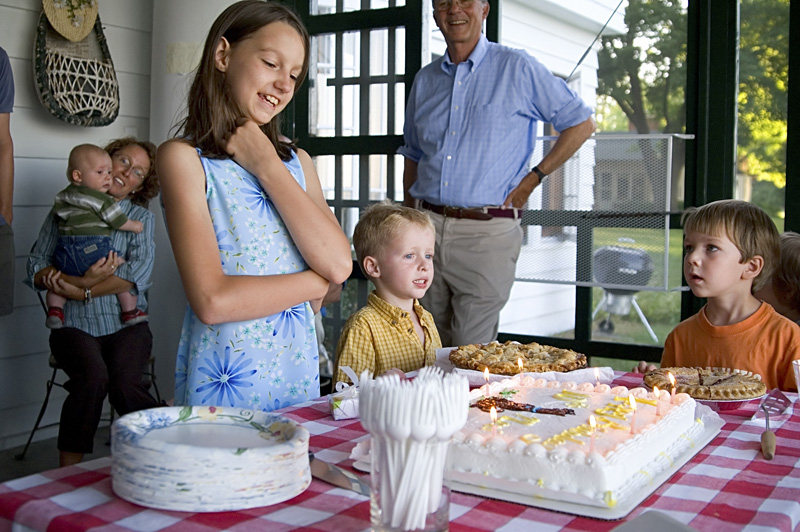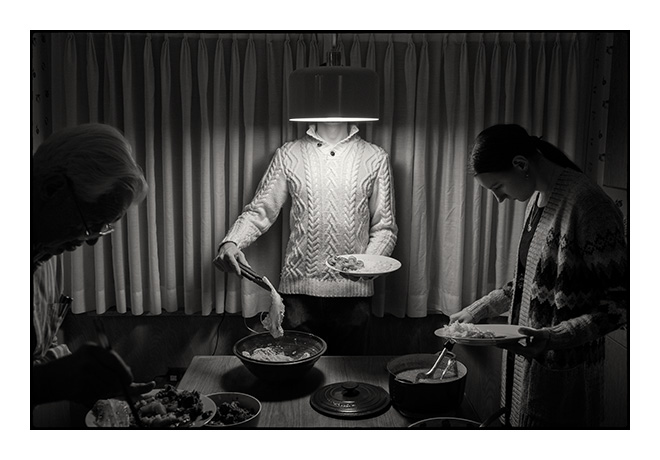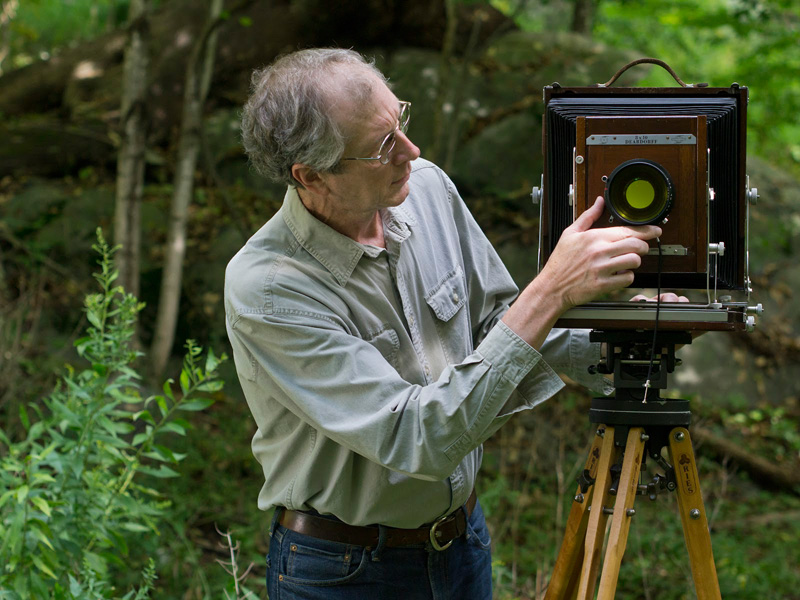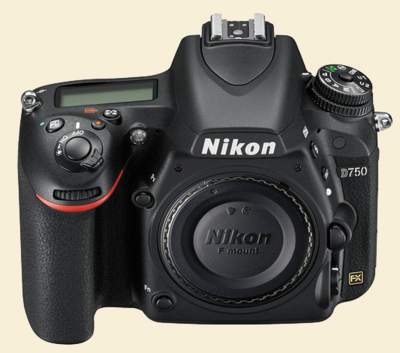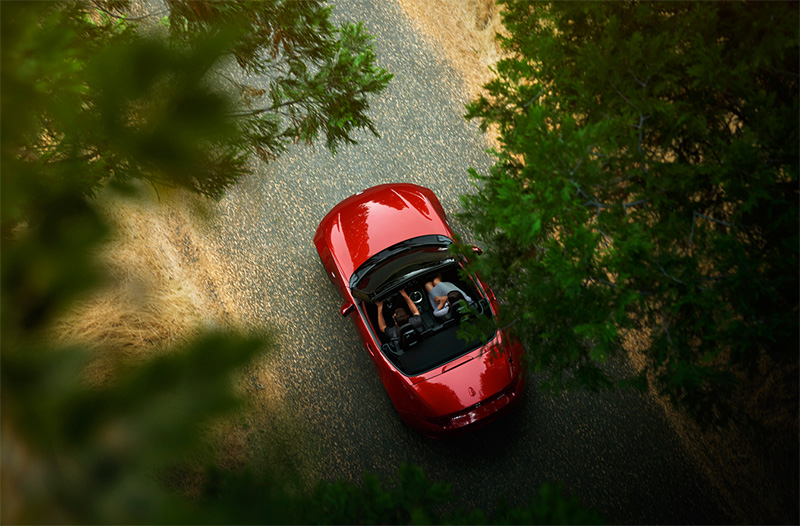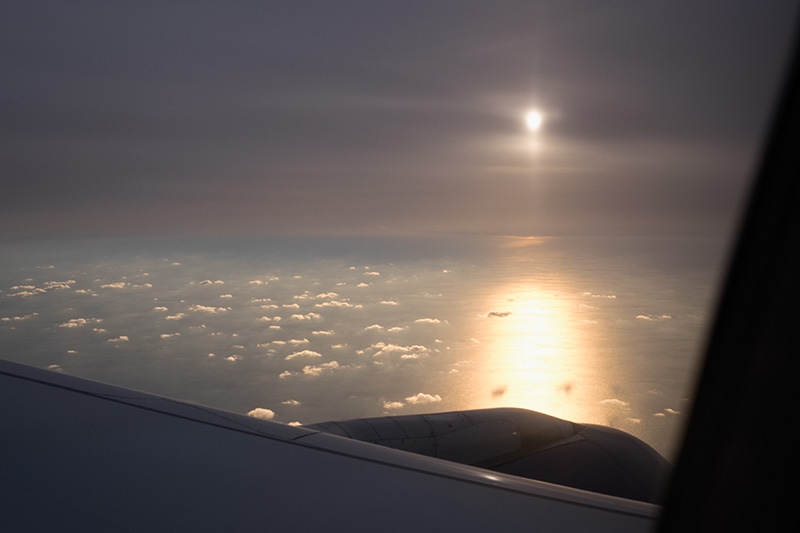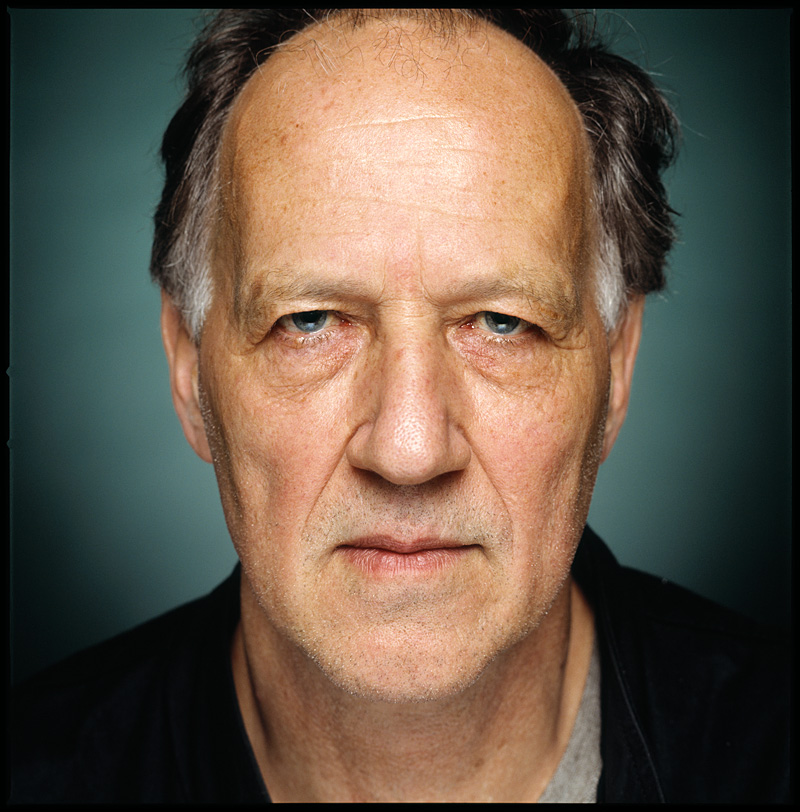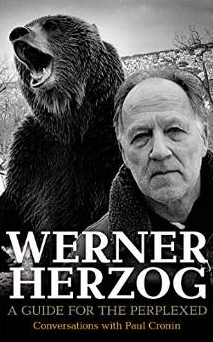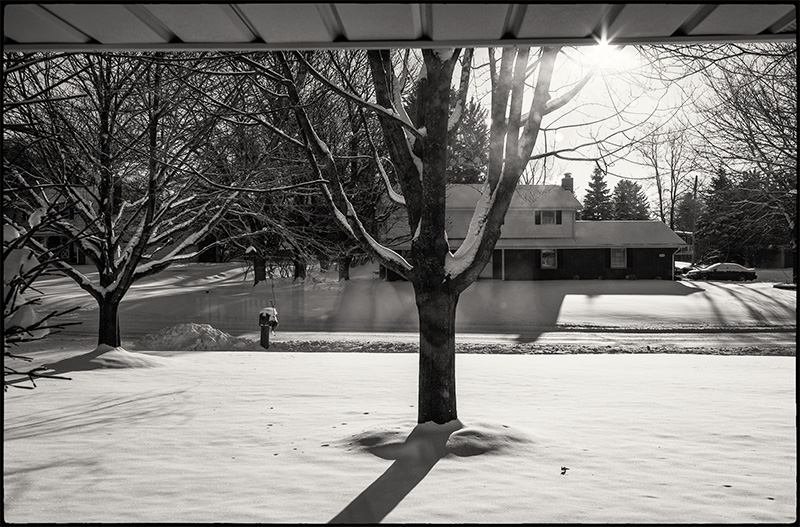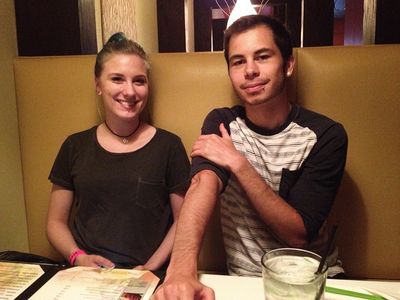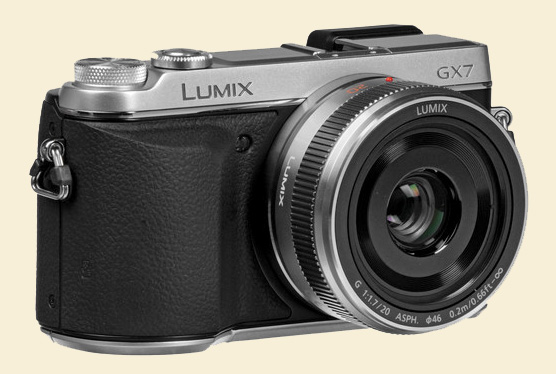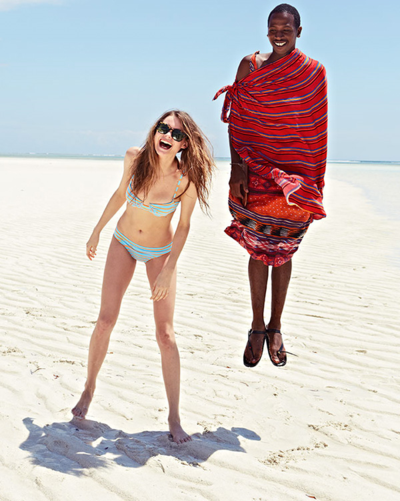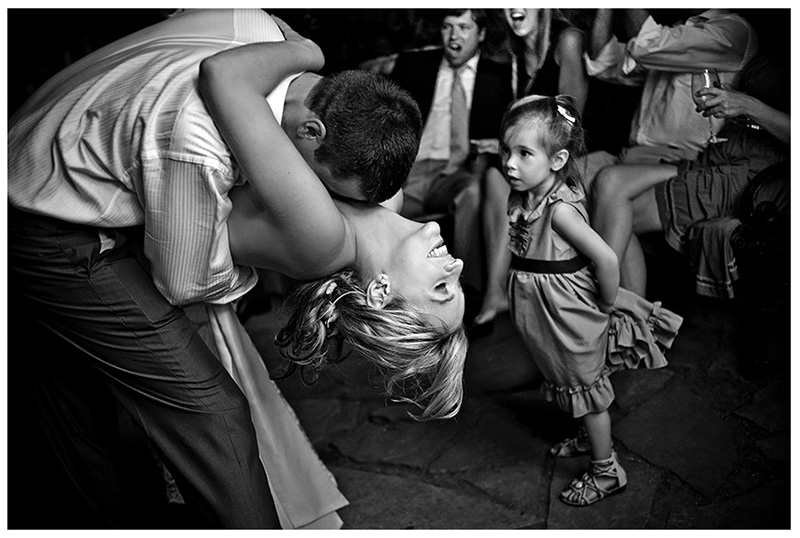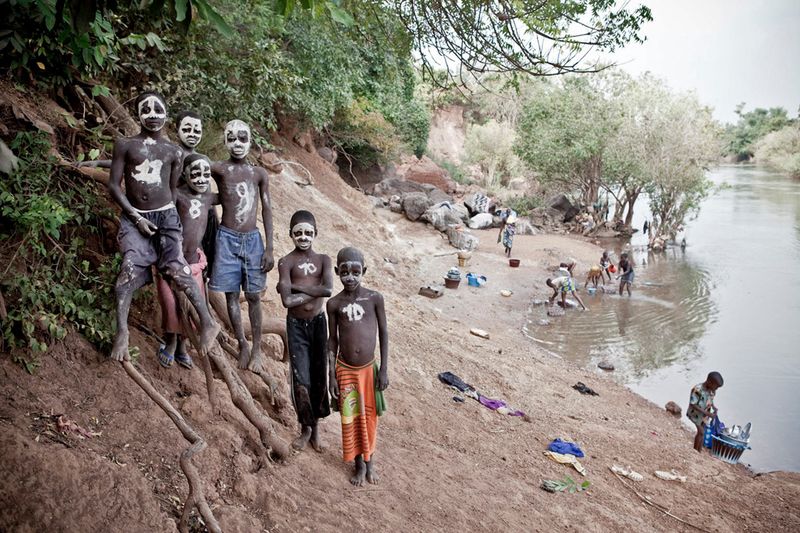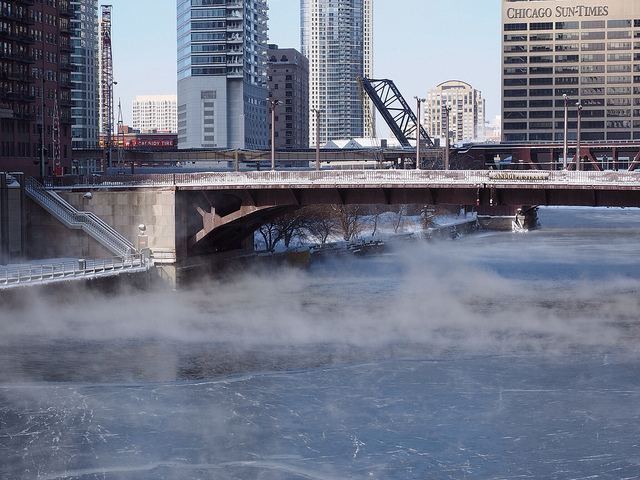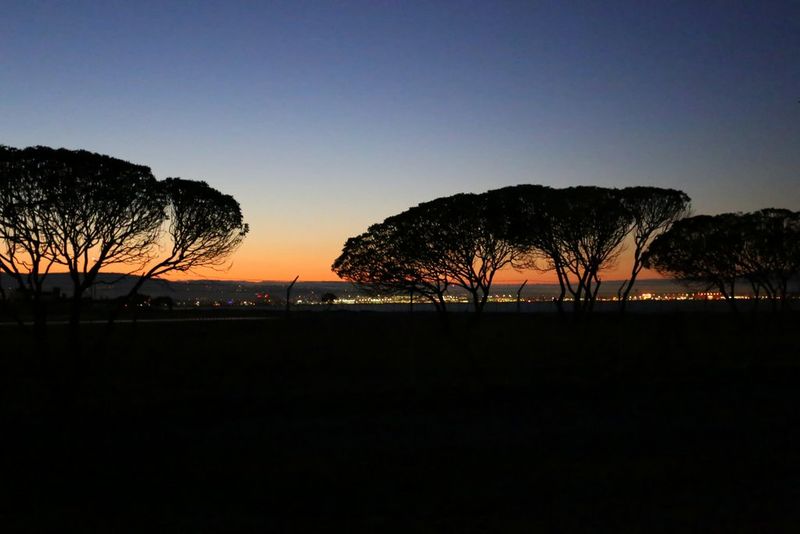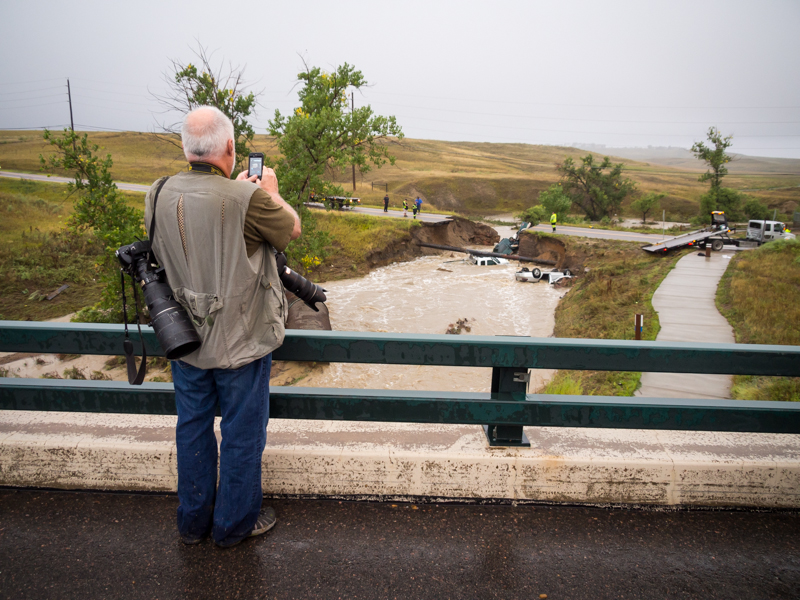It's possible our Comments Section reached a new high water mark for quality yesterday, for which I thank all concerned.
There were a few instances of reading comprehension problems, though. :-) I certainly was not saying (and absolutely not "ranting," Jim!) that all change is bad. I'm saying that not all change is good. Those are two very different claims, are they not? I try as hard as I can to qualify what I'm saying when I say it, but there's a tendency out there to interpret what I say as partisan, a full-on either/or situation. Fer or agin*. One side of an argument. No. I'm fully able to see the nuanced, balanced version, believe me—both sides, and the pros and cons of both sides.
And I must say it amuses me when people assume I'm "ranting" against the digital/Internet era. Ha! It seems to escape their view temporarily that things are much better for me now than they ever were prior to the digital/Internet age. I'm one of the people who more than successfully adapted, remember? I'm one of the beneficiaries of the new order. I make my whole living from TOP, right? I'm a much bigger scraplet of cheese now than I ever was as a junior instructor at a community college, that's for sure (fun as that was in '86).
It's true that I used to make my living as a custom B&W printer, which led to work writing for magazines, which led to a prestigious (well, on paper <— [little pun there]) job editing what was mainly a darkroom magazine. But lest you think I'm pining for good old days of yore, let's just take a brief comparative look at that job compared to my job now:
Old: Constant headaches and distractions in the workplace with dire office-political disputes and tensions.
New: No co-workers—just gifted contributors and endless good company in the form of intelligent and accomplished readers, locally and from around the globe.
Old: Frequent difficulties and disagreements with boss.
New: To paraphrase Louis XIV, in what might be poor French, le boss, c'est moi.
Old: Difficult 13-mile daily commute that took between 50 minutes (best case) and two hours and 20 minutes (worst case), each way, on clogged, pot-holed Chicago city streets, vying with other drivers who could be rude, angry, inept, and sometimes threatening.
New: My computer is on the other side of the wall from my bed, meaning my "commute" is literally less than 12 feet.
(As a bonus, in about 2008 I experimented with seeing how little gasoline I could get away with using, and I made one tank of gas last for two full months.)
Old: Frequent difficulties with limited resources. And even when I figured out clever new ways to maximize those resources, I sometimes didn't even get a "thank you" for it!
New: People voluntarily send me money to help fund my projects. When they aren't obligated to do so in any way, shape or form. Just because they like what I provide for them and because they are generous and want to be helpful. This is not a net positive change?!?
(And thanks again for that, by the way.)
Old: Most of the proceeds of my efforts went into the company's and the boss's pockets.
New: Most of the proceeds of my efforts go into my pockets.
Old: Often severely limited in what I was allowed to say.
New: Can say whatever I want to—limited only by my own better judgment, such as it is.
Old: Between 16,000 and 38,000 readers once every two months, all of whom had to pay for the privilege.
New: Between 14,000 and 72,000 readers every day, none of whom have to pay for the privilege.
Old: The magazine I once edited, after limping along with corporate help for a number of years, finally went out of business a couple of years ago.
New: TOP continues to thrive, which amazes me as much as ever. Still sometimes can't believe me luck.
So, would I say the good old days were better in all ways? You kidding me? Here's what I say to that: !!!
I won't lie, the experience of being a magazine editor was great, and I'm still grateful for the opportunity. It was interesting in a great many ways. I learned a lot. Really liked and appeciated a number of my co-workers and was fortunate to have known them.
But today I have it much better.
I should really write a post one day about how hard it was to make a living as a darkroom printer, too.
Moving on: I wasn't just saying yesterday that some commercial people can't make as much money as they used to, and ain't that a shame. These are real cultural difficulties that are taking place now. "adamct" hit it best when he said "the decline of photography as a profession (photojournalism, wedding and fashion photography, and teachers of photography being the obvious examples) is more than just a sad human interest story. People who spend all their time on photography, who depend on photography for their livelihood, who risk their lives for photography and whose work is regularly seen by a large audience over years and years contribute to the culture of photography."
Yes. Don't look at it as a class of workers who happen to be discomfitted by change, like harness manufacturers in the age of the horseless carriage: rather, consider the people individually and what they really are. I never knew a newspaper photographer who got into that business because he or she thought it was a good way to get rich, or because it was a cushy job. No. They are almost all people who simply love photography and are good at it. That's where it starts for them. That they ended up as newspaper photographers is just because that was the kind of job was available. Because the idea of getting assigned to go out with a camera to see what's happening in the world and take pictures of it seemed too good to be true. The real truth is that when people really love photography, when it's a real need on their part to step in with both feet, then they figure some way to eke out a living at it—some way to be involved in it full time or almost full time, in whatever way matches their talents and abilities and their circumstances. And those people are an important part of the core of the living culture of photography.
That's what made my day somber yesterday. I got a number of long private emails from some obviously really good photography people. People who have devoted their lives to photography and who have learned a great deal about it, and made great contributions to its culture. And who, in those emails, detailed for me the struggles and losses they're dealing with, the changes they're observing which are in no way good, the ways in which the time and work and effort and talent and attentiveness and intelligence they've put in over many years are now just not going to pay off. They didn't want to share their stories with all of you. But they shared them with me, and my heart goes out to them.
Moving on again. Another change, just an example: the fight to get photography into art museums was a protracted one. It was slow in coming and when the goal was finally realized, the victory was limited and had a "negotiated" quality to it. A few types of photography by a limited subset of individuals could get in. But consider that I saw a show at the AIC a few years ago consisting of a huge selection of old snapshots broadcast on a wall like seed on a field. That would never have happened in 1950. Still, in my view the museums have lately turned their focus pretty intently to the end of the film era—the photographers of the second half of the 20th century—such that I'm most of the "stars" I seem to hear about now are...well, the same people I was hearing about when I was in art school in the '80s. It's like hearing "classic rock" all the time on the radio. The museums accommodated to photography, but they have utterly no idea how to handle or make sense out of a demotic (cf. "democratic") creative activity that numbers its creations in the billions and for the most part doesn't even create tangible physical objects.
It's not just that the museums ignore what's happening. It's not just that they refuse to deal with digital photography. It's partly that it's impossible to do so.
And by the way, all you readers o' mine who think you have a good handle on digital photography and what's happening today, you're wrong, too. None of us can even hope to keep up with the work being published on a single sharing site, much less all of them. I look at more photography online than most people do, and I wouldn't claim to have seen one percent of one percent of one percent of one percent of one percent of what there is to see. And a fair amount of what I happen to see is utterly useless and pointless. It's like wandering one section of beach somewhere and examining a small percentage of what has washed up, and then thinking you know what's in the ocean.
Looked at this way, the claim that individuals can control their own destinies and "self publish" on the web and "get seen," in ways they couldn't before, becomes almost sort of quaint, or dear. It's easier now to get seen by a few people, but it's a hell of a lot easier to get lost now than it ever was in history. I just got the fourth (or is it fifth?) book of Vivian Maier photographs I've seen, but what about the person out there who's been working hard for three years doing inventive, original work who's just about to quit because he or she hasn't gotten the faintest ripple of interest from anyone? It's not that anyone's making a conscious decision to ignore the work, or has considered it and judged it not worthy; it's just that it's floating out there in the middle of the vast reaches of the open Pacific, is all. Do you think the Museum of Modern Art has the staff to sift through all the chaff on the 'Net and pick the best? Not hardly.
So when the institutions and employers and markets and all the accepted channels of involvement are thrown into disarray, it's not just that a few people have to go find a new job. It's that the "built" (cultivated) culture can't adapt to the changes fast enough to wrest a sense of coherence out of what's happening, or create reasonable efficiencies of attention and reward, or sensibly encourage those with talent.
Same as it ever was, in many ways—just much more so now.
• • •
See you on Sunday with a vexing computer question about a Xander video, and then next week we have some fun coming up: much more data about your favorite digital camera; some great original information on personal stamps for fine prints from an expert on stamping, Lydia Fiedler; and, from Kevin Purcell, really interesting news about a sensor that I haven't seen mentioned anywhere else yet. Oh, and three very promising new books. Stick around!
Mike
*Frontier slang for "for or against," for ESL readers.
Original contents copyright 2014 by Michael C. Johnston and/or the bylined author. All Rights Reserved. Links in this post may be to our affiliates; sales through affiliate links may benefit this site.
TOP's links!
(To see all the comments, click on the "Comments" link below.)
Featured Comments from:
John Camp: "In the Paris Salon of 1880 there were more than 7,000 paintings exhibited. These were the ones judged good enough to get in. If you Google 'How many pro photographers in the U.S.?' the first answer to come up comes from the Bureau of Labor Statistics: about 143,000. If those numbers were spread evenly, that would mean that for state with the population of Wisconsin you'd expect there to be around 3,000 pro photographers.
"The point being, there are apparently a lot of photographers whose work does get bought and seen. Just not photographers that you know, because this site (I believe) would be mostly attended by people mostly interested in a small subset of photography, called 'art.' To succeed as an artist takes a lot of qualities that most people can't combine: extreme talent, strong business sense, the ability to self-promote, possibly even good looks. There were 7,000 paintings displayed in the Paris Salon of 1880. How many painters from 1880 can you name? If you can name 20, you'd be unusual. Several dozens, or perhaps even a couple hundred, are still considered collectible. The rest simply are gone.
"Why would you think that putting up a website, or any of the other solutions that you suggest, would be adequate to get your work noticed? That's like putting your photos in the back of the local diner and hoping to become famous. I'm sorry, but it takes a ferocious will to become a successful artist—try to think of one where that wasn't the case. In situations like that of Vivian Maier, she didn't have it: she had the talent, and that was about it. It took someone else, who did have the will and the PR skills, to bring her posthumous renown.
"So, contrary to what you apparently think, things now are pretty much like they've always been. Many are called, few are chosen. I suppose the difference between now and then (for some unspecified quantity of then) is that more people have been deluded by the media into thinking that they can make it as artists. Hate to say it, but 'pretty talented' or even 'very talented' isn't good enough, and never has been. There's a profound difference between 'excellent' and 'great.'"
Mike replies: There are certainly lots of success stories out there too, perhaps more than there are "somber" stories. I heard from one photographer today who says things have never been better for him—he billed $60,000 last month and says he does exactly zero marketing and doesn't even have a portfolio—it's all repeat clients and reputation.
Many of the success stories enabled by the Internet, social media, viral marketing or notoriety are wonderful—Vivian Maier is only one of them. (She certainly wouldn't have gotten the attention she has without the Internet.) The first one for me was a real marvel, a story I still tell today. (Although I just went looking for the written-down version and couldn't find it.)
One type of good story I hear all the time is some variation on either a photographer unexpectedly selling a picture because it was seen by someone on the Internet somehow, or a photographer getting a job he or she might otherwise never have gotten.
Ian Goodrick: "This post reminds me of Voltaire’s Candide arguing with Pangloss and Martin whether this is the best or the worst of all possible worlds.
"In some ways the answer is both.
"On a macro level and judged in terms of quantity, the technology to deliver quality at low cost and the ability to put photography in the hands of everyman then it is the best of all possible worlds (so far).
"But.
"On at the micro level and the ability for a photographer to earn a good living entirely from photography then we are in the worst of all possible worlds (so far).
"My background is that I have had my business for over 25 years now, and for the first twenty years made a good living. In recent years I decided to no longer run a photography business. I still run the business as a sideline to my day job, it is run on a cost shoestring with only my mobile phone and email as a contact point. Just enough insurance to cover myself for the work I am now doing and using the equipment that I have kept from the good years.
"Any capitol investment comes from selling the assets of the company. Film cameras and equipment that have a value but no use in my current business get sold and the money reinvested. This along with the income I still get from the few jobs I do puts the company as a break-even concern. I have my day job which is very different to running a photography business, I still get to take a few photographs and it costs me nothing.
"There were many reasons why I stopped and in hindsight I should have radically changed my plans or stopped a year or two earlier but I still had hope that I could continue to earn a good income, but it turned out to be the sort of hope that bloody-minded people have when they refuse to believe the reality of the situation."
vincent bilotta: "After a decade of visual effects work for features and television I bought a Canon 20D and an Epson printer. I got a permit to sell prints at a very popular local waterfall parking lot. Since I was dealing directly with the purchasers and selling $20–$40 prints I could see the response to how I printed each picture. Week to week I played with saturation and sharpness. Cranking up those two variables sold a lot more prints. I made prints that were more subtle and relaxed for myself and those I could establish a dialogue with where I could 'show' the beauty. I sold 5,000 prints in three years. I think that to sell today you have to study your buyers and tune what you want to sell. Flatter them by spending time telling stories and making a case for the more subtle stuff. All this was/is anathema with art-school-educated practitioners that I know. I think of myself as working for the 'Duke'—to survive I must please the Duke, but I get a free life to pursue and enjoy this golden age of optics, sensors and many very knowledgeable photographers who post and discuss their work."
Auntipode: "In years to come, about the digital revolution on photography folks will rephrase and claim as their own: 'It was the best of times, it was the worst of times, it was the age of wisdom, it was the age of foolishness, it was the epoch of belief, it was the epoch of incredulity, it was the season of Light, it was the season of Darkness, it was the spring of hope, it was the winter of despair, we had everything before us, we had nothing before us, we were all going direct to Heaven, we were all going direct the other way—in short, the period was so far like the present period, that some of its noisiest authorities insisted on its being received, for good or for evil, in the superlative degree of comparison only.'"
Ilkka: "I agree with everything else in today's and yesterday's article except the comment that people who really like photography will find a way to eke out a living from it. I know many people who like myself made a conscious decision not to earn a living from photography. I have always liked to travel and to photograph. I still remember when on primary 3 class we got World Atlases. Soon I started to plan road trips to cross Africa, how to go from Europe to Asia by road, from Northernmost Canada all the way down to the tip of Chile. I got my first camera around the same time and started taking some photographs. I got my first proper camera at age 11, a fixed lens 35mm rangefinder. From that moment on, I was a photographer. I got an OM-1 SLR at age 14 and still have that camera. That was 35 years ago. Now I work in an international company. I can buy all the cameras I want, too many in fact so that for many years I have made firm decisions that this year I will not buy any cameras or lenses, or this year I only buy one lens. I travel between 160–210 days every year, get paid for it probably better than 99% of professional photographers, with no deadlines or difficult customers, editors or PR staff to please. So no, I would not want to try to make a living from photography. I have sold some pictures. I have published a book. But I am quite happy just being an amateur, thank you very much."
Speed: "Most photographers today would be classified as small businesses and the failure rate for new small service businesses within five years is close to 50% (47.6%). (Source.) Starting a small business is already hard. Starting a small photography business is harder still. But some people manage to do it."
